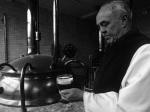
Lent, the period of fasting, prayer, and penance observed by Christians, has a rich history that goes back centuries. One of the lesser-known aspects of this tradition is the role that beer has played in Lenten observances.
Beer, as we know it today, has been around for thousands of years. It was a staple of the ancient Sumerians and Egyptians, and it played a significant role in many cultures, including medieval Europe. During the Middle Ages, beer was an essential part of the daily diet of Europeans, and it was often safer to drink than water, which was often contaminated.
In many parts of Europe, Lent is associated with fasting and abstinence. The Catholic Church traditionally forbids the consumption of meat on Fridays during Lent, and in some countries, such as Ireland, meat is also forbidden on Ash Wednesday, which marks the beginning of Lent. However, there has been some debate over the centuries about whether or not beer is an acceptable beverage during Lent.
One argument against beer during Lent is that it is a form of luxury that contradicts the spirit of self-denial that is at the heart of the Lenten observance. Some theologians have argued that beer is a food and should be treated as such, while others have pointed out that it contains alcohol, which is a form of intoxication and therefore violates the spirit of sobriety that is also important during Lent.
Despite these objections, beer has remained a popular part of Lenten observances in many parts of Europe. In fact, some monasteries have a long tradition of brewing their own beer, and the monks who live there often drink beer during Lent. One of the most famous examples of this is the Trappist brewery in Westvleteren, Belgium, which produces some of the world’s most sought-after beers. The monks who live there are known for their strict adherence to the principles of the Benedictine Rule, which emphasizes prayer, work, and hospitality. They believe that beer is a gift from God and that it should be enjoyed in moderation, as part of a balanced diet.
Beer has also played a role in some of the celebrations that take place during Lent. In Germany and Austria, for example, there is a tradition of holding beer festivals during Lent, known as Starkbierzeit or “strong beer season.” These festivals celebrate the strong, dark beers that are brewed specifically for Lent, and they often feature music, dancing, and other forms of entertainment.
In Ireland, St. Patrick’s Day, which falls during Lent, is a major celebration that often involves drinking beer, particularly the country’s famous stout. While St. Patrick’s Day is not technically part of the Lenten observance, it is still a significant part of the religious and cultural traditions of Ireland, and beer has played a role in those traditions for centuries.
In conclusion, while there has been some debate over the centuries about the role of beer in Lenten observances, it is clear that beer has played a significant role in the religious and cultural traditions of many parts of Europe. From the monasteries that brew their own beer to the beer festivals that celebrate the strong, dark beers of Lent, beer has been a part of these traditions for centuries. Whether or not one chooses to include beer in their Lenten observance is a personal choice, but it is clear that for many people, beer is an important part of their religious and cultural heritage.
Advertisement